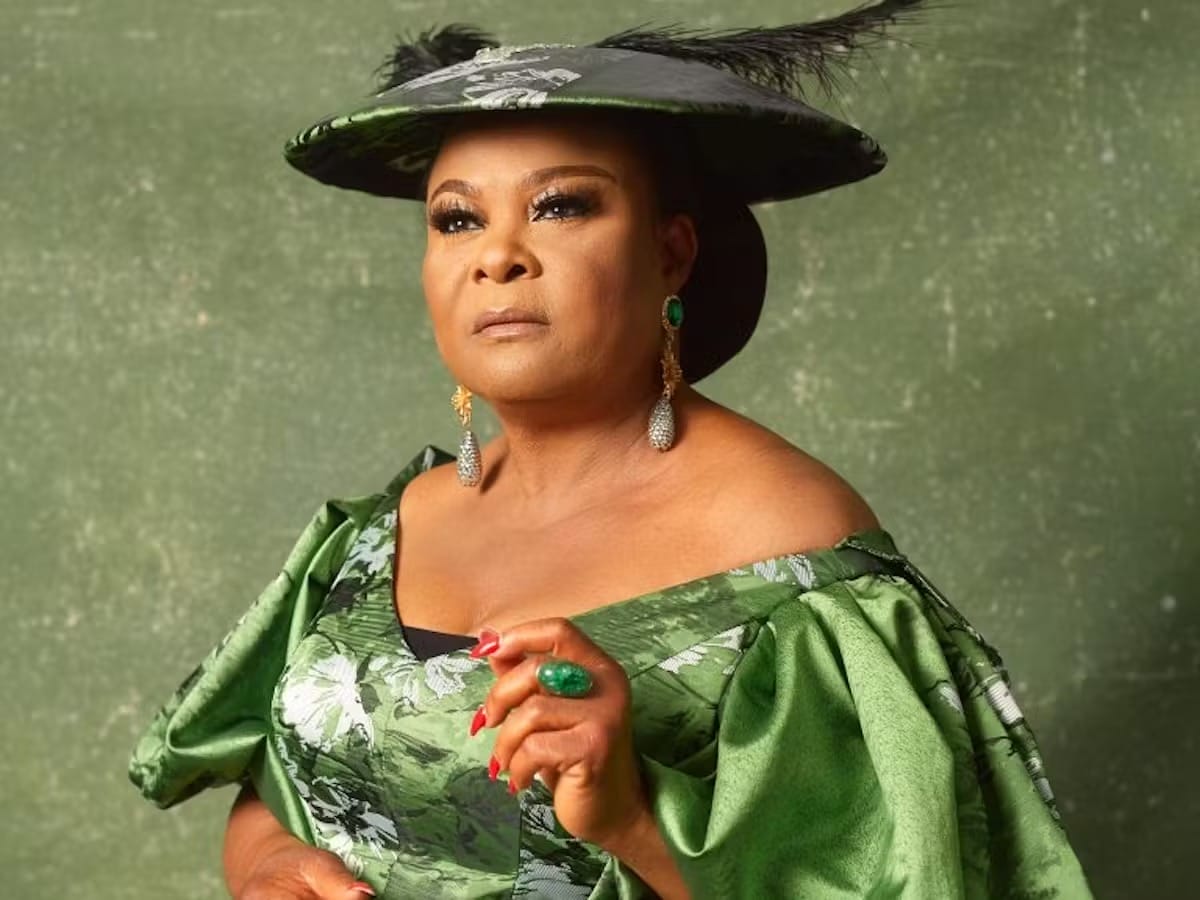There are stars, and then there are sovereigns, those rare forces of nature who rule not merely with talent but with longevity, versatility, and a spirit that defies time. Sola Sobowale is one such sovereign.
Dubbed the Grand Queen of Nollywood, hers is not just a career, but a legacy, scripted in bold ink across decades of Nigerian cinematic evolution.
ALSO READ: Bertina Engelbrecht: The Steady Force Redefining Corporate Leadership in South Africa
To behold Sola Sobowale on screen is to witness an elemental performance, ferocious yet tender, regal yet raw. Whether she’s commanding a palace court as Oba in King of Boys or delivering comedic brilliance in Yoruba classics, her every gesture is laden with power.
For an actress who began her journey in the 1980s, Sobowale remains astonishingly contemporary, effortlessly traversing tradition and modernity.
Born in 1963 in Ondo State, Sola’s early artistic inclinations found roots in theatre and television. Her breakout came through the iconic Village Headmaster and later Mirror in the Sun, but it was Super Story: Oh Father, Oh Daughter that cemented her national recognition in the early 2000s.
In that role, as the unforgettable Toyin Tomato, Sola unleashed a character so deeply entrenched in Nigerian pop culture that her catchphrases still echo today.
But like all monarchs destined for reinvention, Sola was far from finished.
ALSO READ: Omoyemi Akerele: Architect of Africa’s Fashion Future
Her triumphant rebirth came in 2018 with King of Boys, directed by Kemi Adetiba. As Eniola Salami, a political godmother torn between power and redemption, Sobowale delivered one of the most riveting performances in African film history.
It wasn’t merely an acting showcase; it was an ascension. She became the heartbeat of a franchise, the face of female dominance in an industry often tilted toward male protagonists. And with The Return of the King on Netflix, her global stature only swelled.
What makes Sola Sobowale unparalleled isn’t just her screen presence, it’s her ability to embody every role with an emotional truth that transcends scripts. She becomes every woman: the mother, the warrior, the lover, the tyrant, the protector. She doesn’t play characters; she channels spirits.
Yet, for all her grandiosity, she is deeply human. Those who’ve worked closely with her speak of a woman of extraordinary humility and discipline. Her work ethic is legendary, shooting for 20-hour days, reworking scripts on the spot, mentoring younger actors on set.
Her love for craft is sacramental. In a culture where celebrity can be fleeting, Sola Sobowale has built a throne of permanence.
Off-screen, she’s a fiercely private mother and grandmother, rooted in her Christian faith and Yoruba heritage. After a brief relocation to the United Kingdom to raise her children, she returned to Nigeria with even greater artistic fire. That quiet season, she says, was necessary. “I gave the industry my youth, and I gave my children my love. Now, I give myself fully to purpose,” she once remarked.
Today, Sola Sobowale stands at a remarkable intersection where legacy meets expansion. With international directors eyeing her for cross-cultural roles and whispers of a biopic in development, the Queen is not slowing down. She’s simply reloading.
In the court of Nollywood, where fame is fickle and thrones often tumble, Sola Sobowale reigns with rare, undimmed light. Hers is not a borrowed crown, it is forged from resilience, burnished by excellence, and adorned by time.
She is not just the Queen of Nollywood.
She is its matriarch, its muse, its magnificent flame.

